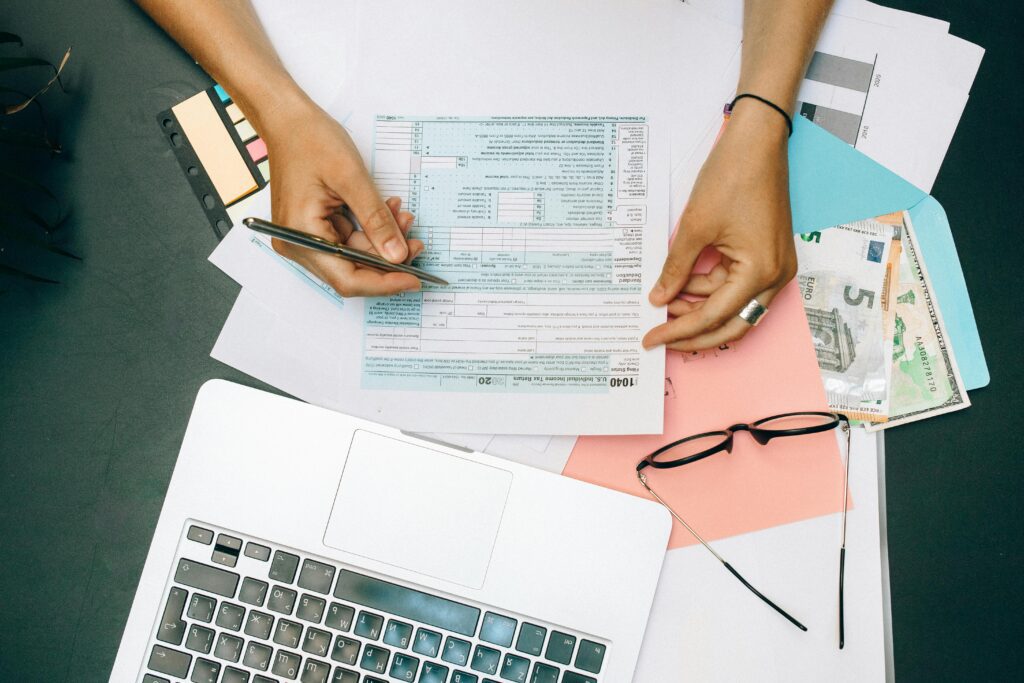
A Guide to Selling a Property with Tenants in Situ
A clear guide to selling a property with tenants in situ, covering legal responsibilities, tenant

Whether you have a single property or a large real estate portfolio, you need to know about Capital Gains Tax or CGT. Any profit that you make from selling a property could be subject to CGT and there is a penalty for not paying CGT on time, so you must know how much you should be paying and how it works. Join me as I look into the definition of CGT, what sales it applies to, how you can calculate your tax liabilities and more.
Table of Contents
ToggleCapital Gains Tax, or CGT, is applied to any profit you make when ‘disposing of’ i.e. selling an asset that is worth more than £3,000 and has increased in value. So as long as you make more than £3,000 profit when you sell a property, it will be subject to CGT. For property investors and landlords, this could be when they sell property for a profit. Capital Gains Tax is calculated on the amount of profit made rather than the sale price. CGT applies not just to sales of assets, but also to some gifts, transferring ownership to someone else, exchanging it for something else, or receiving compensation, such as in the form of an insurance payout if the asset was lost or destroyed.
CGT applies to:
As the name implies, you pay CGT on the gains from the sale of an asset. So for example, if you bought a house for £100,000, spent £50,000 on renovating it, then sold it for £200,000, your profit would be £50,000 and you would need to pay tax on this amount, less your personal allowance of £3,000.
The amount of CGT you need to pay is based on your income tax rate. If you pay basic rate income tax, you would need to work out your taxable income using your personal tax allowance, which can vary depending on your individual circumstances. But in most cases, the cutoff for the basic tax rate is £50,270. If you earn more than this in a given tax year including the profits from selling a property, you would pay the CGT on those profits. The percentage does vary from 10% to 28% depending on your situation and if the property is commercial or residential.
If you are within the basic tax rate, the tax percentages are 10% for residential property and 18% for commercial property. If you are in the higher or additional tax brackets, i.e. £50,271 to £125,140 for higher and over £125,140 for additional, then you will pay:
Here are some formulas you can use to help calculate your CGT:
Taxable Income = Total Income – Personal Allowance – Any Income Tax Reliefs
Taxable Gains = Total Gains – Capital Gains Tax-Free Allowance
You can also use the government’s Capital Gains Tax calculator to work out if you need to pay CGT and how much. Even if you do not make enough profit to pay CGT, or if you make a loss, you must still report the sale of the property to the HMRC. Losses can also be offset to reduce your total taxable profits even if they are from previous tax years, if you did not already use them to offset previously.
Paying CGT is simple – just visit the HMRC website and you can report gains and losses online. I recommend that you work out your gains first to find out if you have to report and pay CGT first using the gains calculator. You will need the following details:
You must report any sales that are subject to CGT within 60 days of the sale, or you could be penalised and fined for late filing.
Some property sales are exempt from CGT such as your main residential home using Principle Private Residence Relief (PPR). You can claim this as a reduction on your CGT on a property that you used to live in, even if you did not live there at the time of the sale. Property that is owned and sold by a limited company is also exempt from CGT, although it would be subject to Corporation Tax – if you are in the higher tax bracket and would be paying the higher rate of CGT, then this could be worth it as Corporation Tax is slightly lower than CGT (at the time of writing, August 2024). Other forms of gains can be exempt from CGT, including gifts between spouses or civil partners or assets gifted to a charity.
Understanding Capital Gains Tax can be tricky, and making sure you pay the correct amount on time is crucial to avoid penalties. While this guide provides an overview of CGT, everyone’s financial situation is unique, and tax laws can change. To ensure you’re fully informed and to optimise your tax liabilities, I would recommend consulting with an accountant or financial adviser. They can provide tailored advice, help ensure compliance and potentially save you money in the long run.
Are you interested to learn more about investing in property? Why not join me, Liam J Ryan, and other property gurus at one of Assets For Life’s FREE property events? Click here to sign up or find out more.
You May Also Be Interested In...

A Guide to Selling a Property with Tenants in Situ
A clear guide to selling a property with tenants in situ, covering legal responsibilities, tenant

House Flipping Course: The Only Training You’ll Need To Get Started In Property
Learn how to flip houses with expert training. This UK-based course guide will help you

Renters Rights Bill 2025: A Landlord’s Guide
Now that the Renters Rights Act has become law, here is what UK landlords must
Featured Property Investment Events & Courses
The Property Deal Packaging Summit
The Property Millionaire Bootcamp
The Serviced Accommodation Bootcamp
Assets For Life LTD is a company incorporated in England and Wales with registered number 09935286 and registered offices at Assets for Life Ltd, Suite 105, Waterhouse Business Centre, 2 Cromar Way, Chelmsford, Essex, England, CM1 2QE, United Kingdom.
Assets For Life LTD is registered with the Information Commissioner’s Office, with registration number ZA280607
COPYRIGHT © 2024 ASSETS FOR LIFE, ALL RIGHTS RESERVED. WEBSITE BY AMPLIFY MARKETING
Want to learn more about serviced accommodation? Learn more about our FREE events here.